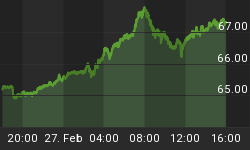In June 2009, the Treasury Department granted 10 of the nation's largest financial institutions permission to repay $68 billion the government had loaned them during the recent financial crisis under the Troubled Asset Relief Program (TARP). It was a big day: The financial crisis was averted, the government got its money back and taxpayers were made whole. (Some smaller banks have yet to repay their TARP loans, but the big banks have.)
Pundits and commentators undoubtedly will debate for years to come whether the TARP bank bailout was necessary, and to what degree it paid for itself. But one thing seems clear: The nation's biggest financial institutions benefited from the federal government's determination that they were too big to fail. More than 300 small and midsized deposit-taking institutions have gone under in the past two years, but none of the big banks have suffered extinction, even though it was their massive risk-taking that nearly capsized the financial system. (Lehman Brothers, which did go broke, was an investment bank, not a deposit-taking institution.)
The Citigroups and the J.P. Morgans may have paid back their TARP funds but no one is asking them to recompense the federal government for its implicit guarantee to stand behind them during a financial crisis. As it turns out, investor faith that Uncle Sam will bail out the big banks when they get into trouble is worth a lot of money.
In a new study, "Size Anomalies in U.S. Bank Stock Returns: A Fiscal Explanation," UCLA professors Priyank Gandhi and Hanno Lustig contend that the implied federal guarantee against disaster risk amounts to $4.7 billion per large bank on average. Write the authors in the paper, which has been published by the National Bureau of Economic Research:
"The insurance provided against financial disaster risk amounts to an implicit financial disaster subsidy of 3.10% to the cost of equity capital for the largest U.S. commercial banks, and an implicit 3.25% financial disaster tax on the smallest banks, compared to a portfolio of non-bank stocks and bonds with the same non-disaster risk exposure."
Thus, the rich get richer, and the poor go broke... Not due to any dynamic inherent in free-market capitalism, but due to the bald favoritism of government policy. The TARP bail-out money was the most visible aspect of this preferential treatment. But as Gandhi and Lustig observe, the big banks benefit from many other government and Federal Reserve policies. "These institutions benefit from special provisions: deposit insurance, access to the discount window at the Federal reserve and other special lending facilities."
Investors can buy and hold big bank stocks knowing that they can participate in the outsized profits made during boom years but can rest assured during the inevitable financial crises, often brought on by the same banks' risk taking, that the government will prevent the banks from going under.
Smaller banks have no such guarantees. Non-financial companies have no such guarantees. (Even the Detroit automakers who received federal bailout money had no expectation beforehand that they would be rescued from bankruptcy.) American consumers have no such guarantees.
Other than the raw injustice of one set of Americans (managers of, investors in and creditors to big banks) getting implicit subsidies of billions of dollars a year that other Americans do not enjoy, there are three questions worth asking.
First, who pays for the subsidy? Surely the economic value created for big banks must come from somewhere, even if we cannot identify a specific source as we can for the TARP bailout. Economic value cannot be created ex nihilo. The task of answering that question may be insolvably complex, but it remains very real. Until I hear a good argument to the contrary, I operate on the assumption that the "little people," like my peers and me, are the ones getting invisibly hosed.
Second, does the implicit guarantee create moral hazard? Will big bankers, thinking themselves too big to fail, embark upon another round of insane risk taking that will result in another round of privatizing the profits and socializing the losses? Will the new federal financial reform law succeed in its attempt to prevent systemic risk? I'm betting that the big bankers are smarter than the regulators and have ample incentive to figure out ways to get around whatever roadblocks may be set up.
Finally, if the big banks are too big to fail, should we as a matter of public policy cut them down to size? I normally oppose federal intrusions into the marketplace, which invariably have unforeseen consequences. But if implicit big-bank subsidies of $4.7 billion a year are baked into the status quo, I say it's time to bring out the ol' meat axe and start chopping.















